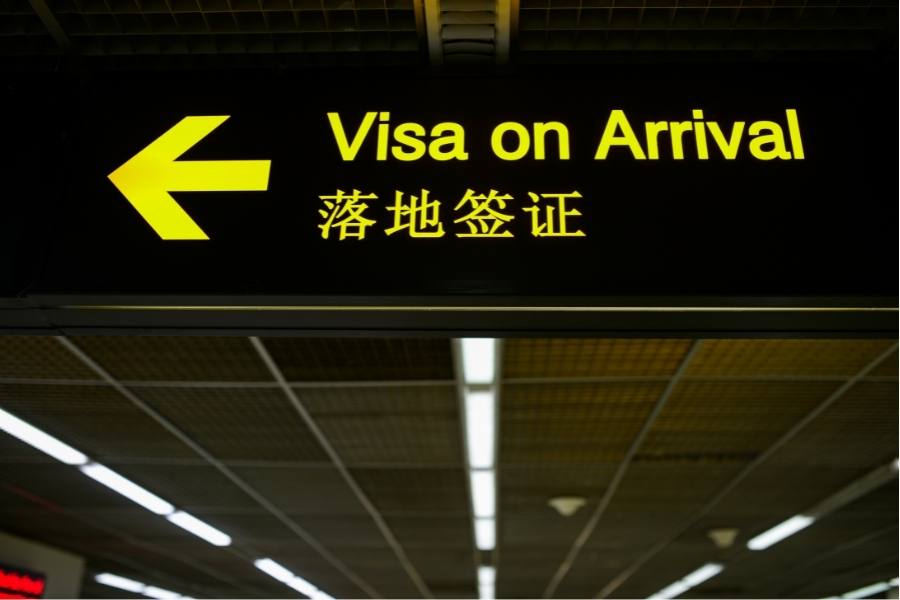Thailand’s economy has hit a bit of a slump, and the tourism sector is still not completely back to its pre-COVID glory days of over 40 million tourists.
This has pushed the Thai parliament to revamp its visa schemes, targeting tourists, digital nomads, and retirees.
Yesterday a big announcement was made on the changes to Thai visas which are rolled out on June 1, 2024.
I’ve ranted before about the convoluted Thai visa system and suggested some radical overhauls.
Imagine my surprise when I saw some of my ideas like the creation of a Thailand digital nomad visa reflected in the new proposals.
They’re not perfect, but there’s definitely progress.
Extending the Visa Exemption Stay from 30-Days to 60-Days
Finally, there is some good news for those eligible for visa exemptions. In the past, you could stay for only 30 days without a visa.
If you wanted to stretch it to 60 days, you had to apply for a tourist visa. That’s no longer necessary.
Now, you can enjoy a 60-day exemption and extend it for another 30 days at immigration, giving you 90 days in total before you need to think about a visa run or leaving the country.
This also means that the Multiple Entry Tourist Visa (METV) has become obsolete.
Before, you could only stay for 60 days per entry with the METV. This new 60-day exemption plus extension option makes things a lot simpler.
However, the METV still has its uses for those who don’t qualify for visa exemptions or visa on arrival.
Positives:
- No more tedious forms for the e-visa tourist visa.
- Bye-bye tourist visa fees.
- Longer stays mean fewer visa runs.
Negatives:
- The visa extension process still exists with its bureaucracy and fees.
Expanding the List of Countries That Can Use Visa Exemption
Thailand plans to increase the number of countries eligible for visa exemption from 57 to 63. What I find crazy is all the reports on the Internet claiming this list has grown to 93. We are talking about reputable news outlets here. The number of 93 includes the Visa on Arrival countries, there is a difference between Visa-Exempt and Visa On Arrival.
The 63 is hardly an expansion as the 6 countries added already were temporarily included. Here is the list for everyone to see.
1. Canada
2. Czech Republic
3. Denmark
4. Estonia
5. Finland
6. France
7. Germany
8. Greece
9. Hungary
10. Iceland
11. Indonesia
12. Republic of Ireland
13. Israel
14. Italy
15. Japan
16. Kuwait
17. Latvia
18. Lichtenstein
19. Lithuania
20. Luxembourg
21. Malaysia
22. Maldives
23. Mauritius
24. Monaco
25. The Netherlands
26. New Zealand
27. Norway
28. Oman
29. The Philippines
30. Poland
31. Portugal
32. Qatar
33. San Marino
34. Singapore
35. Slovakia
36. Slovenia
37. Spain
38. South Africa
39. South Korea
40. Sweden
41. Switzerland
42. Turkey
43. Ukraine
44. United Arab Emirates
45. United Kingdom
46. United States
47. Peru
48. Hong Kong
49. Vietnam
50. Saudi Arabia
51. Andorra
52. Australia
53. Austria
54. Belgium
55. Bahrain
56. Brazil
57. Brunei
58. China
59. Laos
60. Macau
61. Mongolia
62. Russia
63. Cambodia
Expanding the List of Countries Eligible for Visa on Arrival
The list of countries eligible for the visa on arrival will grow from 13 to 30.
Again lazy reporting by most other news outlets has falsely claimed that the VoA would increase its length from 15 days to 60 days. No, it stays at 15 days. Here is the full list of countries that can apply for the 2000 THB 15-day Visa on Arrival.
1. India
2. Kazakhstan
3. Malta
4. Mexico
5. Papua New Guinea
6. Romania
7. Uzbekistan
8. Taiwan
9. Bhutan
10. Bulgaria
11. Cyprus
12. Fiji
13. Georgia
14. Guatemala
15. Jamaica
16. Jordan
17. Kosovo
18. Morocco
19. Panama
20. Sri Lanka
21. Trinidad and Tobago
22. Tonga
23. Uruguay
24. Albania
25. Colombia
26. Croatia
27. Cuba
28. Dominica
29. Dominican Republic
30. Ecuador
This list comes from Nation one of the few outlets going into a bit more detail. Outlets like Forbes seem to also include countries like Armenia and Serbia to be added to this list. It would be great if there is just one official site explaining the new rules. Time will tell.
The visa extension at immigration at 1,900 THB only allows for 7 additional days. The 60-day tourist visa or the Multiple Entry Tourist Visa are the go to options if you want to stay longer.

Creation of the Destination Thailand Visa Useful for Digital Nomads
Thailand is introducing a five-year visa aimed at digital nomads, remote workers, freelancers, Muay Thai students, and Thai food enthusiasts.
The Destination Thailand Visa (DTV) is valid for five years and allows stays of up to 180 days per year.
You can extend your stay once for an additional 180 days by paying a fee of 10,000 baht (around $280).
To qualify, you must be at least 20 years old and have financial reserves of 500,000 baht (about $14,500) during your stay.
Compared to other countries in Asia, like Malaysia with its $24,000 annual income requirement, Thailand’s threshold is very low.
DTV holders can work online for clients overseas, but working for a Thai company requires a separate work permit.
The fee for the DTV is 10,000 baht (approximately $280). The government hasn’t detailed the application process yet, but it will likely involve either the immigration office in Thailand or a Thai consulate or embassy abroad.
At the moment it is not known if the DTV falls under the 90-day reporting like almost all Thai visas do. It would be great if not.
Another perk of the DTV is that you can bring along your legal dependents, including your spouse and children under 20.
The DTV is the perfect visa for my situation where I stay in Thailand for 6 months of the year. I can’t wait to have it.
Lowering the Health Insurance Threshold for the O-A Retirement Visa
Previously, the high health insurance threshold pushed many retirees toward the Non-Immigrant O visa, which required no health insurance.
Now, with the health insurance threshold lowered from 3 million THB coverage to the pre-pandemic level of 440K THB, retirees can apply for the O-A visa online through the e-visa system at their home country’s Thai embassy.
Expanding the e-Visa System
The Thai e-visa system streamlines the application process for all types of Thai visas. By the end of 2024, half of all Thai embassies and consulates worldwide will offer e-visa services, this is an increase from 47 to 94 embassies and consulates.
Conclusion – Digital Nomads Rejoice

Thailand desperately needed a Thailand digital nomad visa. Previously, digital nomads resorted to visa runs, tourist visas, and visa exemption schemes to extend their stay.
Some even misused educational or business visas just to be able to do an extended stay.
The DTV addresses this need economically and efficiently. It’s a crucial addition to Thailand’s visa options.
The real test will be the simplicity of the application process – Thailand’s bureaucracy can be notoriously complex.
The DTV might overshadow other programs like the 10-year LTR visa, which has stringent requirements, or the expensive Thai Privilege Card, offering hassle-free entry for a hefty fee.
Digital nomads, the wait is over. Thailand is finally aligning with modern needs.
Get ready to embrace the blend of vibrant culture, beautiful landscapes, and, yes, a touch of Thai bureaucracy.
It wouldn’t be Thailand without a bit of a challenge, right?


















